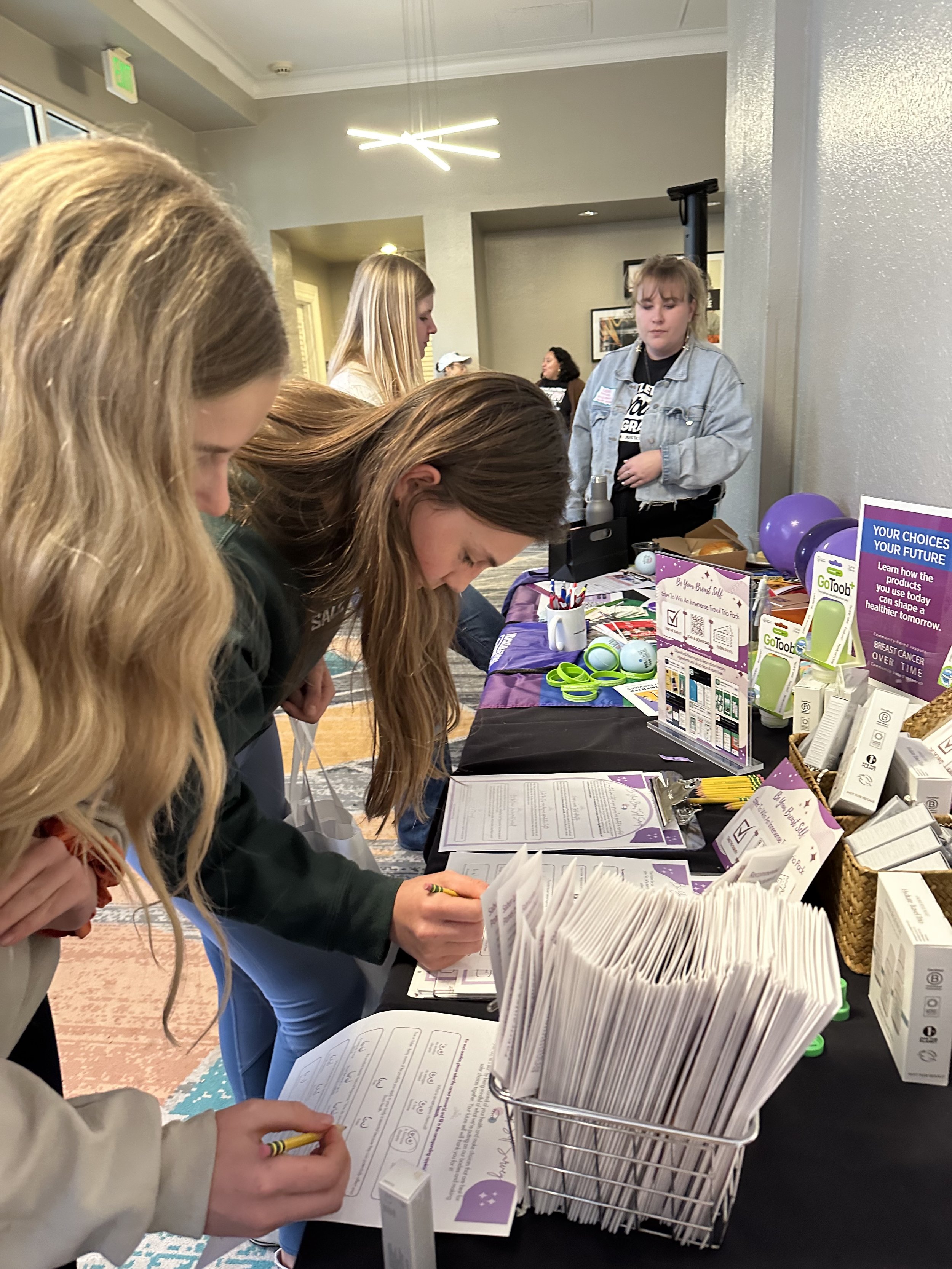
Preventing Breast Cancer For The Next Generation
Community-based research, influencing global change
A paradigm shift in breast cancer research is essential NOW – in time to actually protect the next generation - our children. We need answers based on strong scientific information, from studies that advance our understanding of environmental causation. We will continue to seek, support, and advocate for this path of prevention research.
-
In 2015, Breast Cancer Over Time, together with our research partner, the California Pacific Medical Center Research Institute, was awarded a Community Research Collaboration (CRC) grant for a pilot study on the impact of chemical exposures from personal care products on human breast tissue. In 2018, we were awarded another CRC grant for a full study. Both grants were funded by State of California cigarette tax dollars, through the California Breast Cancer Research Program.
The study, was a collaborative venture between researchers, breast cancer survivors, and recruited study participants comprised of young women within the community who voluntarily donated extracted breast cells at the beginning and end of a 28 day period (a typical menstrual cycle). During these 28 days, the women only used “clean” cosmetic products that did not contain certain hormone disrupting chemicals. The breast cells were cultured in the laboratory and subjected to testing to identify changes in breast cells that occurred when these chemical exposures were eliminated by the change in product use.
The purpose of the study was to further understand how exposure to hormone-disrupting chemicals, found across all categories of personal care products, affects normal human breast cells, particularly cellular features associated with breast cancer risk.
Results of the study, published in early 2023 in the scientific journal Chemosphere, showed that decreasing real-time exposure to parabens and phthalates in personal care products changes the expression of genes and associated cellular processes in breast cells that are associated with higher breast cancer risk.
While more research studies are necessary follow up on our findings, our study results are significant enough to spread the critical awareness that use of personal care products containing parabens and phthalates may increase a person’s risk of breast cancer. Immediately pursuant to release of the study results, Environmental Health News interpreted the research findings in their article, “Get phthalates, parabens out of the bathroom drawer to reduce breast cancer risk: Study.”
Community-Based Research
Community & Global Support
-
BCOT operates an open support group for women in active treatment and those living with breast cancer. Participants are referred by local physicians, social workers, and group members. Meetings are conducted by a breast cancer survivor with over 14 years of support group experience. Groups are designed to provide a supportive environment to share experiences, discuss treatments, and explore how to survive/live with a breast cancer diagnosis.
Additionally, BCOT partners with Healing Circles Global, a non-profit healing community built upon the concept that small “Circles of Trust” (groups of 8 or fewer) provide a safe, compassionate healing space where participants honor, find meaning, support, and explore each others’ unique paths to healing and alleviation of suffering, without judgement or advising.
Policy & Legislation
-
In California, BCOT has been a voice for breast cancer survivors advocating for breast cancer prevention in support of the following new laws:
Toxic-Free Cosmetics Act (AB 2762 - Muratsuchi); Cosmetic Fragrance and Flavor Ingredient Right to Know Act of 2020 (SB 312 - Leyva); California PFAS-Free Cosmetic Act (AB 2771 - Friedman); California Safer Food Packaging and Cookware Act (AB 1200 - Ting); and the Safer Clothes and Textiles Act (AB 1817- Ting).
In Washington, D.C., BCOT members work with the National Breast Cancer Coalition, to support the Department of Defense Breast Cancer Research Program (funding innovative research where breast cancer advocates have input into grant making decisions), and the Metastatic Breast Cancer Access to Care Act, which would waive mandatory lengthy waiting periods before people with metastatic breast cancer can obtain SSI and Medicare benefits for which they already qualify.
Empowering teens to take control of their breast health.
Empowering teens to take control of their breast health.
Breast Cancer Over Time was thrilled to participate in the 2024 Marin Teen Girl Conference! We provided the 250+ attendees with vital education and available resources on the importance of protecting their breast health now to diminish the chances of breast cancer in the future. See our educational materials and share, share, share with all the women you know!





















